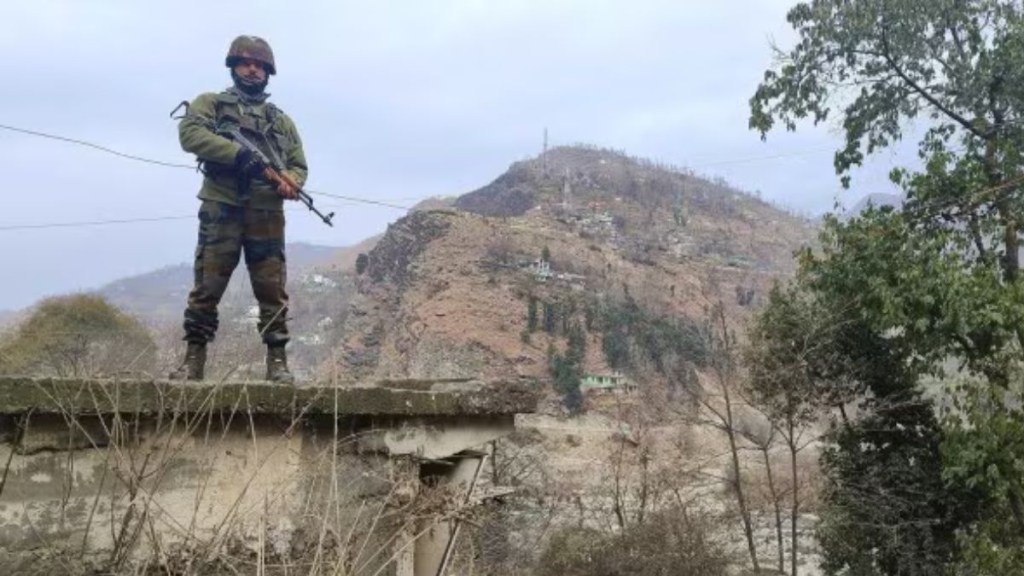The Army’s internal investigation into the deaths of three civilians, reportedly during questioning by Army personnel following a terrorist event in Jammu and Kashmir’s Poonch in December 2023, has revealed notable gaps in the conduct of 7-8 individuals, including officers, at various levels of authority.
The findings of the inquiries point that the cause of death of the three civilians was torture, allegedly during interrogation, according to The Indian Express.
A terrorist attack occurred on December 21 on the Mughal Road between Dehra Ki Gali and Bufliaz. The following morning, eight civilians were apprehended from Topa Pir in the Bufliaz area of Poonch district, and five were detained from the Thanamandi area of Rajouri district. Among the eight individuals taken from Topa Pir, three succumbed to injuries allegedly sustained during interrogation.
It’s been reported that the investigations discovered deficiencies in both the overall management of the operation and the behavior of specific personnel. Administrative and disciplinary measures have been proposed against two officers and other ranks who were deemed directly or indirectly accountable for the interrogation.
According to the sources, preliminary findings suggest administrative shortcomings and a lack of command and control by the Brigade Commander of 13 Sector RR and the Commanding Officer (CO) of 48 Rashtriya Rifles (RR).
Although the Brigade Commander was not physically present at the location and the CO was on leave at the time, they have been reassigned since. While they were not directly implicated in any wrongdoing, administrative measures have been advised against them. Often not physically present at the scene, their responsibility lies in ensuring the implementation of Standard Operating Procedures (SoPs) and other protocols.
According to The Indian Express report, the sources have indicated that appropriate disciplinary measures have been suggested against two officers, Junior Commissioned Officers (JCOs), and other ranks who were present during the interrogation of the civilians who were detained. It was reported that one of the officers assumed the responsibilities of the CO in his absence.
While the two officers may not have directly participated in the physical torture that allegedly resulted in the deaths, they were accountable for ensuring that the interrogation adhered to established rules and procedures, stated The Indian Express report. Therefore, disciplinary action has been proposed against them.
In the military, disciplinary action could result in a court-martial, with potential punishments including the death penalty depending on the severity of the offense. Administrative action, on the other hand, entails departmental measures without a trial, which could lead to penalties such as loss of seniority, fines, censure, or even termination of service.
According to The Indian Express report, the inquiries have been finalized after undergoing scrutiny for legal procedures and other details, including the invocation of Army Rule 180, which grants the accused the option to cross-question witnesses to clarify statements.
Based on the directives of the inquiry reports, all evidence is being gathered in the form of a summary of evidence, upon which further actions such as a General Court Martial may be ordered.
Meanwhile, 48 RR, the unit implicated in the incident, has been reorganized and retrained under a new Commanding Officer and redeployed in another sector under the Nagrota-based XVI Corps.
Responding to queries from The Indian Express, the Army stated that investigations into the incident are ongoing, and it would be premature to conclude at this stage.
The Army emphasized its commitment to conducting a thorough and impartial inquiry to establish the facts surrounding the incident, ensuring fairness, comprehensiveness, and conclusiveness in the investigations. Further actions will be determined based on the investigation outcomes.
The Army reiterated its dedication to upholding the highest standards of discipline, conduct, and ethics in accordance with the law, with a zero-tolerance policy towards any human rights violations.
“Our protocols and procedures are designed to ensure that all personnel adhere to these principles, even under the most challenging operational conditions,” the Army stated.
Following the incident, Defence Minister Rajnath Singh, accompanied by Army chief General Manoj Pande, visited Rajouri and met with the families of the three civilians who died. The families reported that Singh had assured them of justice.

